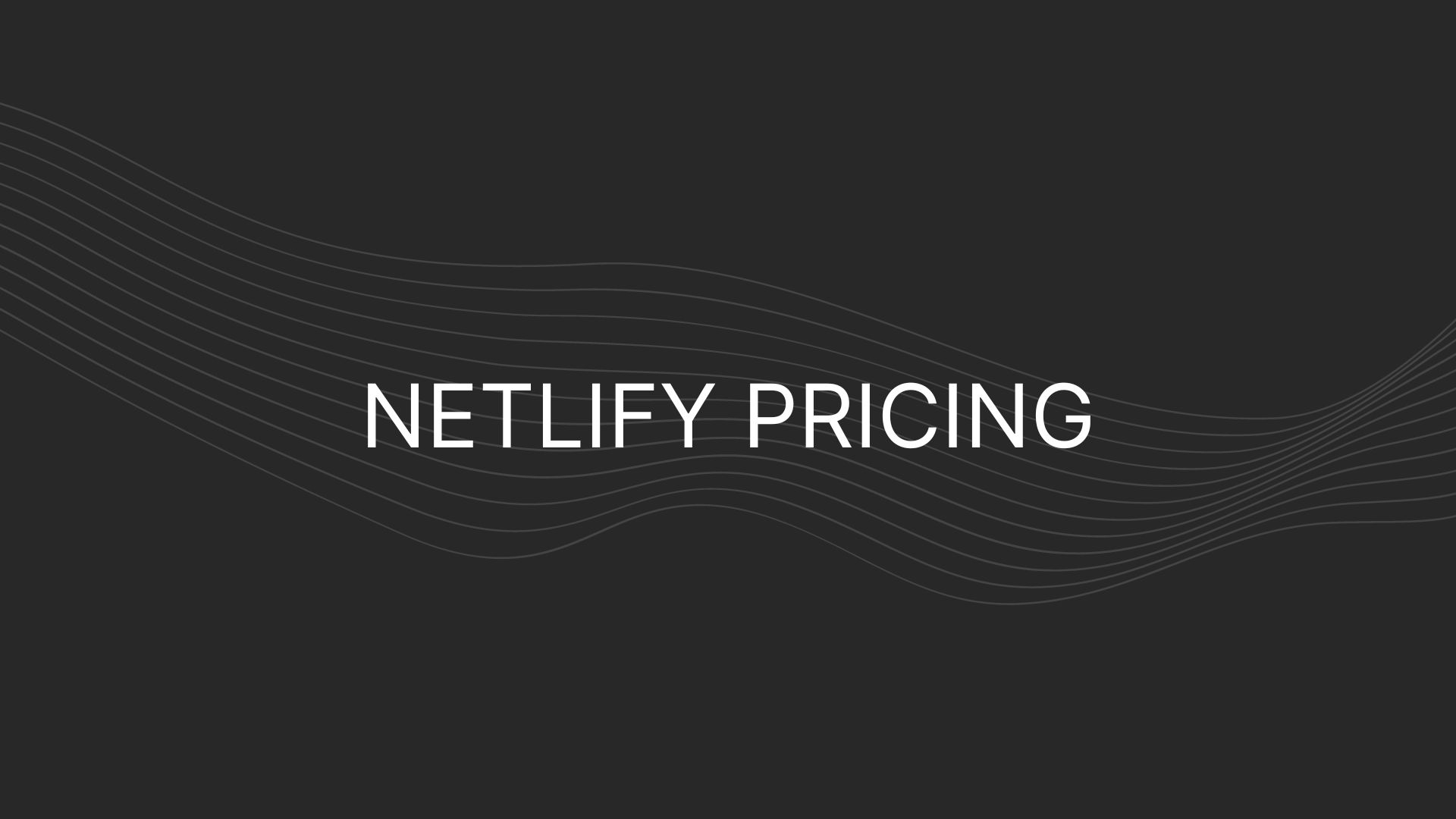Are you looking for Netlify pricing? Get an idea of how much Netlify will cost your company here. You can host a web application or make a static website and then use Netlify’s serverless backend services.
What is Netlify?
Netlify makes it easy to build, deploy, and scale modern web-based applications. With it, developers are able to build high-performance websites, e-commerce stores, and apps with the necessary infrastructure and automation. Using Netlify, developers can easily integrate their favorite tools and collaborate with their teams to deliver the best online experiences more effectively. Its powerful, yet simple workflows allow you to integrate your choice of tools with ease. Thousands of enterprises and millions of developers use Netlify to run their modern web apps in production, from global corporate websites to online stores and SaaS platforms. With a global team of over 150 employees, Netlify is a venture-backed software company founded in 2014.
Netlify Overview
Netlify Pricing
Besides a free membership, Netlify pricing has three different paid packages on a month-to-month basis. Prices are determined by the features included in each package. The free tier offered can be used by businesses before they subscribe to the paid plan. Since Netlify’s free tier has no time limit, you can use it until you decide to upgrade. The prices start at $19 per member per month.
Netlify Pricing Plans
With Netlify’s free package, developers can deploy unlimited websites with 100GB of bandwidth per month and 300 build minutes. For a website with moderate traffic, this is enough. An additional $15 per month per member is charged when using the free tier. There are three other Netlify pricing options.
- The Pro starts at $19 per member per month.
- The Business starts at $99 per member per month.
- The Enterprise has custom plans available.
Netlify Enterprise Pricing
This Netlify pricing plan is customized based on the needs of the team and their performance requirements.
Netlify Product Comparison
- Starter Plan – As already mentioned is free to get started. The plan is ideal for projects for personal use, hobby sites, or experiments.
- Pro Plan – The plan comes with advanced features and offers support for professional projects. Suitable for pro developers who can use it to build pilot projects or small sites, and for private organizations Git repositories.
- Business Plan – Designed for extensive teams getting started and looking for collaboration, security, and compliance. Teams with larger sizes will benefit from this plan.
- Enterprise Plan – Customized services tailored to the needs of a specific team and performance level.
As with any paid tier, Netlify allows you to host up to 500 sites. Regardless of the tier, you cannot host more than 500 websites.
How Much Does Netlify Cost?
Getting started with Netlify is free. Bandwidth and usage-based charges may apply. Netlify pricing ranges between $19- $99 per member per month. Add-ons such as site analytics are priced separately. Additional charges are also incurred for the Starter and Pro when they exceed the usable bandwidth of the various features.
If Netlify Pricing Is Too High, Check Out These Netlify Alternatives
These are the top Netlify Alternatives
- Salesforce Heroku – With Salesforce Heroku, you can create fantastic applications quickly to remain in touch with your customers. The tool allows you to customize the app development experience for each client with up-to-date CRM data and smart tools.
- Firebase – Powered by Google, Firebase users are able to rapidly accelerate, scale, and manage their app development process without having to worry about infrastructure. By using the platform, you can create apps, release them, and monitor them as well as boost engagement levels.
- AWS Cloud9 IDE – Over 40 languages are supported by AWS Cloud9 IDE software, which comes with collaborative coding tools. With the integrated chat facility, users can collaborate in real time. Besides code completion, it also offers adaptive themes, multiple cursors, code collapse facilities, and Node.js integration.
- GitHub – The GitHub platform allows individual developers and companies to develop, ship, and maintain software. By recording and rewinding any code changes, developers can keep their teams in sync. It helps to write quality programs with fewer lines of code.


